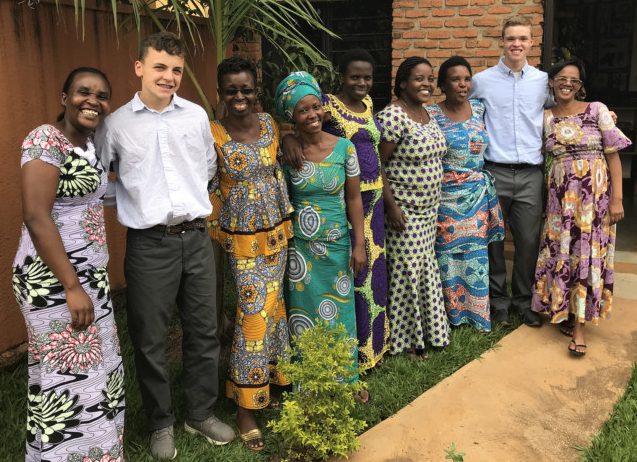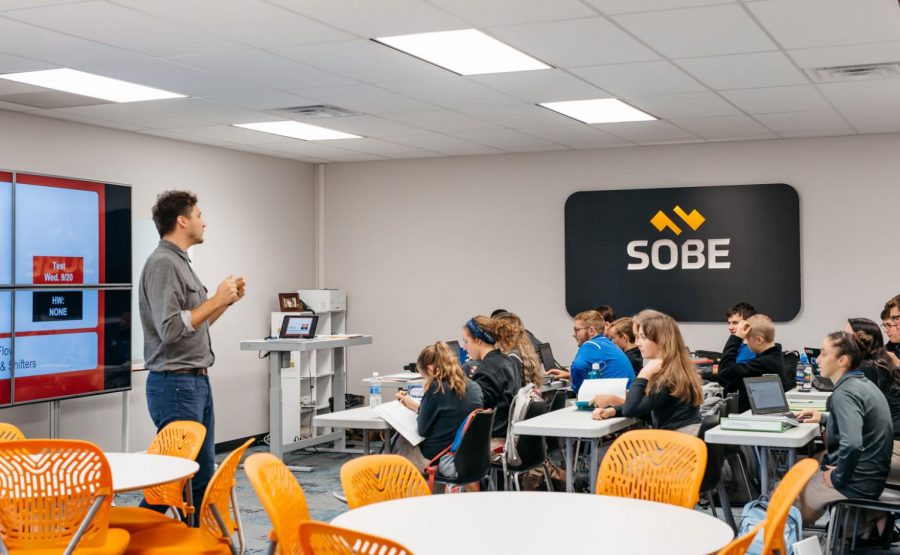Shya Designs: Helping Rwandan Women, Giving High Schoolers Experiential Learning
As a non-profit organization, Shya Designs hopes to improve the lives of Rwandan Women while also providing hands-on business experience to high school students.
September 11, 2018
Students from Cuyahoga Valley Christian Academy School of Business and Entrepreneurship help women in Rwanda while simultaneously earning real-world experience by running Shya Designs.
Shya Designs is a non-profit organization that imports bags and other accessories that were sewn by the widows of victims of the Rwandan Genocide.
Their vision is to create a “sustainable employment and caring community for women in Rwanda.” In doing so, the Kigali women are able to earn an income to support their families and send their children to school.
Justin Folger, a senior at CVCA and a part of the Shya Designs sales team, said that their team is essentially the American end of the business. This allows the Rwandan women to expand their recognition continentally and gives high school students a chance to apply the skills they learned in class.
The Students

McKenna Miller, the CEO of Shya Designs, said that along with managing a business it teaches the students to work together in groups.
Miller’s father works in business, which kickstarted her interest in it, Miller said. When she started at CVCA and discovered the school’s business and entrepreneur program, Miller said there was nothing keeping her from getting involved.
Miller and Folger seem equally fond of Shya, saying that business class is their most memorable class among the school’s other subjects.
“Reading a book or doing math problems is great, but this class impacts people across the world,” Folger said.
The profit the students earn goes to the women who design the bags in Rwanda, which the students seem to be proud of.
Miller said that although she does not have a personal relationship with the Rwandan women, she thinks it is amazing to know that she is helping them.
Both Miller and Folger plan to go to college to continue their business journey. Miller said she would be interested in studying business law while Folger said he would like to go into business marketing.
The Designers

There are seven Rwandan women who make Shya’s bags and accessories, but they all share a similar past of atrocity.
The Shya Designs’ webpage has a list of their designers and their own personal stories. Some of the women include Jane and Betty.
According to the website, Jane had lost all but two of her children during the Rwandan Genocide. She sold fruit on the streets to survive until she was invited to work at the Amahoro Sewing Co-op, which is the business in Rwanda which the women work at.
Thanks to the sewing co-op, Jane was able to send her two children back to school. Her oldest son was able to graduate from a university with a degree in agriculture and her other son plans to study hotel management after placing third nationally in his entrance exam, the website said.
Betty, another designer, was found in a church by Jane. Betty was too poor to eat so Jane introduced her to Amahoro Sewing, the website said.
Betty had spent the early days of the genocide hiding at a banana plantation with her brothers. She and her siblings all faced various wounds that occurred from the genocide, the website said.
Every bag Shya Designs sell comes with a tag that gives the name of the designer, Folger said, so the purchaser can feel more connected with the women.
Visit Shya Designs for more information on the business.












